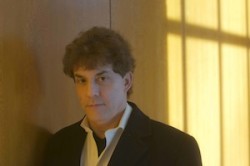Watergate: A Novel
by Thomas Mallon

Watergate: A Novel
by Thomas Mallon
448 pp., Vintage
$13.40
In June of 1972, President Richard Nixon’s White House cronies burglarized the Washington, DC, office of the Democratic National Committee. Since then, the Watergate complex has become inextricably associated with the scandal, slid into the lexicon, and been placed permanently in history.
Thomas Mallon’s novel, “Watergate,” re-examines the botched caper that caused the downfall of Vice President Spiro Agnew; the resignation of President Richard Nixon; the elevation of an unelected vice president – Gerald Ford – to the presidency, and the incarceration of 43. Ford’s subsequent pardon of Nixon exasperated the country into bouncing him from office in 1976.
A plethora of Watergate literature has since appeared without completely explaining all the details of the breach. The task seems to have been “assigned” without coordination between upper- and lower-ranking officials. Attorney General John Mitchell and Deputy Director of the Committee for the Re-Election of the President (CRP) Fred LaRue, were caught unaware:
“I can tell he [E. Howard Hunt] wants me to take the blame,” said Mitchell. “Colson wants me to do it, too, and so does Haldeman. Just step up to some microphone and say I ordered the break-in. The Democrats will think they’ve solved that mystery where even the trial couldn’t. And they’ll lose interest in our little cover-up, because it would have failed.”
“There’s only one problem with that,” said LaRue.
Mitchell nodded. “The small fact that I never ordered the break-in.”
“I know you didn’t,” said LaRue.
“Who did?” asked Mitchell.
“I don’t know.”
“Neither do I …”
Nor, did E. Howard Hunt, a Nixon consultant, who was jailed:
“… How had it all begun? Why had Liddy [finance counsel, CRP] asked them to go into the DNC? The radio had this morning mentioned that Brezhnev would be visiting Cuba this week. Detente of no détente, the fundamentals still applied. Maybe there had been Cuban money going to the DNC. For the first time, standing here by a curb, Hunt asked himself: Had Manuel Artime — wasn’t he a friend of Rebozo’s? — somehow been connected to the burglary? Perhaps even been its prime mover?”
But, trouble did commence almost immediately, and it surged into public awareness partially because Katharine Graham, publisher of The Washington Post took an interest in the story, as did her investigative reporting duo, Carl Bernstein and Bob Woodward. Nixon’s “plumbers” — the coterie who tried to “plug” the leaks – were arrested, and the FBI looped cash the trespassers had on hand with a slush fund that was manipulated to re-elect the president. The Republicans claimed there was evidence that indicated the Democrats were receiving a financial buttress from the Cuban dictator, Fidel Castro, but nothing was proven.
The conspirators tried to protect themselves with lies that arguably overshadowed the offense. And, a year later, during the investigation put on by the Senate Watergate Committee, former White House staffers divulged their knowledge of Nixon’s elaborate tape recording system in the Oval Office — which had secretly documented conversations. Because of its existence, Nixon entangled himself — accidentally – by withholding the information. Ironically, the election was less than five months away, with an already predicted landslide for him.
Eventually, the Committee requested the tapes; the president balked; the Committee demanded the materials; Nixon stalled:
“… What had been the point of making the tapes in the first place? Whatever they contained about his grand policy designs, Kissinger [Secretary of State] would still get all the credit …”
Finally, the US Supreme Court ordered Nixon to release the cache of information to the US government; he relented — and quit.
As he has so capably discharged in his earlier historical novels, “Dewey Defeats Truman,” “Henry and Clara,” “Fellow Travelers,” and “Aurora 7,” Mallon rejuvenates a significant piece of history. With Watergate, for example, many of the 112 names on the character roster may no longer be well-known — Joe Alsop, Jeb Stuart Magruder, Bebe Rebozo, Samuel Ervin, James O. Eastland, and Leon Jaworski — but they embodied a larger National-Emergency-In-The-Making that seesawed the nation between a catastrophic Nixon/Agnew ouster, and one resignation — Nixon’s — that would be cushioned by the appointment of a new vice-president/soon-to-be-president. These events are worthy of study, particularly because they are unlikely to occur again.
Within the framework of this depicted urgency, Mallon brushes in goodness, charity, and dimension through other points of view. Fred LaRue, for example, who was obscure to the public, is written in as an operative who would fix things up with the Committee — and couldn’t – especially for his beloved friend, John Mitchell, while Nixon’s secretary-confidante, Rose Mary Woods, catapulted to renown and infamy for erasing 18½ minutes of secret testimony. She was so protective of her boss that she cornered herself into loneliness and after-the-job social isolation.
Alice Roosevelt Longworth, daughter of Theodore Roosevelt, was a Nixon ally of many years, despite her ascending criticism of his unwise and irrational decisions. Then, there was Pat Nixon. She was not precisely the “long-suffering” spouse, as often reported. If Mallon is accurate, she was a perceptive, loyal partner/counselor, who often maneuvered two versions of herself: the school teacher, Miss Ryan, from the long ago years of innocence in Whittier, California — before Richard Nixon — and the political wife who continued to swallow the repeated public humiliations disseminated by her husband — within an occupation where advancing the country was often subordinate to getting even.
 David Bruce Smith is the author of 12 books, founder of the Grateful American™ Foundation, and co-founder of the Grateful American Book Prize.
David Bruce Smith is the author of 12 books, founder of the Grateful American™ Foundation, and co-founder of the Grateful American Book Prize.




